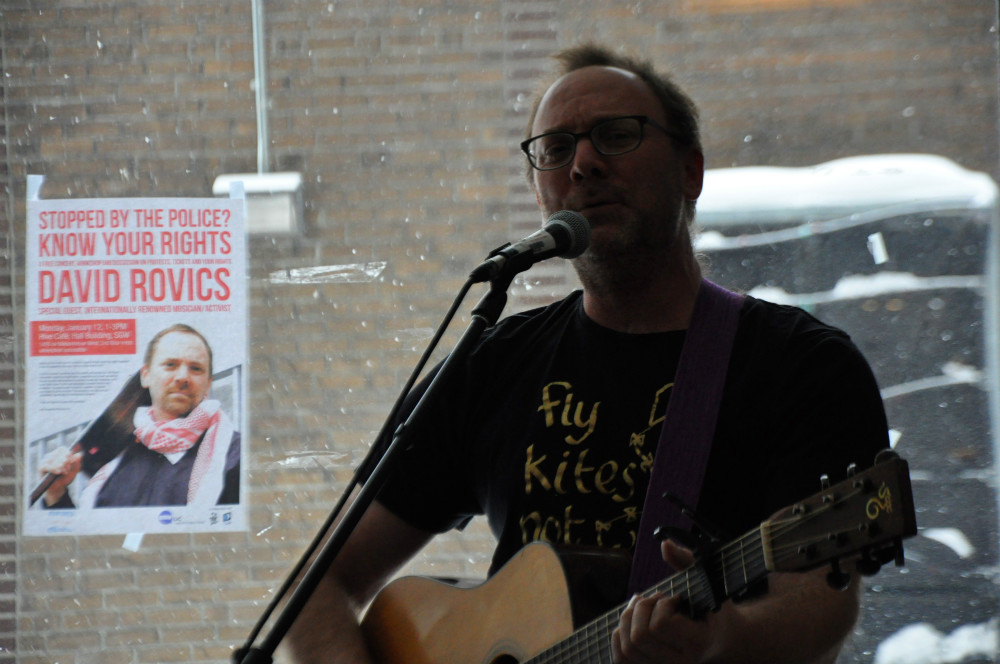CSU’s legal information clinic organizes student information workshop
The Concordia Student Union (CSU) legal clinic organized a free know your rights event on Monday, Jan. 12, at The Hive Café situated on the downtown campus. The workshop was put in place to give students basic and necessary information about the rights of the average citizen vis-à-vis the police.
Subjects such as when to say no the police, what to do if detained and other general tips were addressed by the hosts of the event.
David Rovics opened the two hour long event with an intimate concert. Rovics is an internationally known indie musician known for the controversial topics he addresses in his songs.
Here’s a few basic principles shared at the event that could always be useful:
- You don’t need to identify yourself. Only if you are arrested by the police (by the way, they should clearly state so, and if they don’t, you are strongly encouraged to ask if you are and why) should you give the following information: your full name, your complete address and your date of birth. Everything else is out of bounds.
- Police can briefly detain you, but not for long. You should regularly ask them if you are still detained since they can’t hold you indefinitely.
- You have the right to stay silent. It may seem a basic tip, but a lot of people rationalize that if you did not do anything bad, you should cooperate with the police. The thing is, you don’t need to and sometimes, just stating that you have nothing to tell them may make you avoid some unnecessary complications or further interrogations.
- Film it! If you are involved in a police altercation, as the accused party or a witness, you should always try to film it or ask around to see if someone else did. The police may be frustrated by this practice, but it may also restrain them from doing certain things. You are supposed to have the right to film the police, even if they don’t like it.
- They can’t go through your things. Police may ask you to look through your belongings, and may do so even if you don’t want them to. Still, in those cases you should be clear and state to the police that you don’t give them the right to do so. Even if they do search you, and hypothetically find something incriminating, further down the road you may be able to get out of trouble by showing that this was an illegal search.




